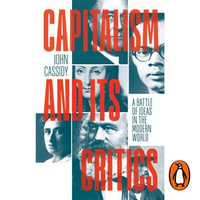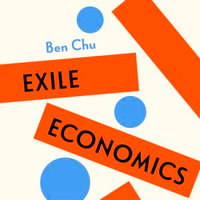
Economic Impacts of Imperialism
How Empire Building Shaped Global Trade and Economics
Author: Arlo Holders
Narrated by: Juliette Fanser
At a Glance
Digital Audiobook
02:41.27
Published: 26th January 2025
Digital Audiobook
$8.99
or 4 interest-free payments of $2.25 with
Instant Digital Delivery to your Booktopia Reader App
Listen on
Imperialism, as a driving force in global history, established the foundation for much of the modern world's economic and political systems. The roots of imperialism stretch back to ancient civilizations, where conquest and control of territories provided the resources and labor necessary for expansion and prosperity. Over time, the concept evolved, shaped by cultural ambitions, geopolitical competition, and economic incentives. By the late 15th century, the age of exploration began a new phase of empire building, marked by the European powers seeking wealth and influence beyond their borders.
At the heart of imperialism was the pursuit of economic gain. Wealth from foreign lands, particularly precious metals, spices, and other coveted resources, spurred the earliest imperial endeavors. These ventures not only enriched nations but also fueled rivalry among emerging powers. The drive for resources and markets intensified during the Renaissance and the early modern period, as advancements in navigation and maritime technology made long-distance expeditions feasible. Imperial powers sought to expand their influence by establishing colonies, which would serve as sources of raw materials and as markets for manufactured goods.
Cultural and ideological factors also played a role in shaping imperialism. The belief in the superiority of certain civilizations over others justified the conquest and subjugation of indigenous peoples. Religion was another motivator, with missionary efforts often accompanying territorial expansion. Christianity, in particular, became a tool for legitimizing imperial control, as colonizing powers framed their endeavors as missions to civilize and convert native populations. This intertwined economic exploitation with a sense of moral and cultural obligation, creating a complex dynamic between the colonizers and the colonized.
Listen on
ISBN: 9798347806492
Published: 26th January 2025
Format: Digital Audiobook
Language: English
Publisher: Aurora Edens LLC
Duration: 02:41.27
You Can Find This Audiobook In

DIGITAL AUDIO
Digital Audiobook
$33.99

DIGITAL AUDIO
$45.99

DIGITAL AUDIO
$33.99

DIGITAL AUDIO
Digital Audiobook
$33.99

DIGITAL AUDIO
Digital Audiobook
$27.99

DIGITAL AUDIO
$33.99

DIGITAL AUDIO
Digital Audiobook
$27.99

DIGITAL AUDIO
Digital Audiobook
$44.99

DIGITAL AUDIO
Digital Audiobook
$44.99

DIGITAL AUDIO
Digital Audiobook
$34.99

DIGITAL AUDIO
Digital Audiobook
$33.99

DIGITAL AUDIO
Digital Audiobook
$33.99

DIGITAL AUDIO
Digital Audiobook
$47.99

DIGITAL AUDIO
Digital Audiobook
$6.99

DIGITAL AUDIO
Digital Audiobook
$8.99

DIGITAL AUDIO
Digital Audiobook
$8.99

DIGITAL AUDIO
Digital Audiobook
$13.99

DIGITAL AUDIO
$19.99

DIGITAL AUDIO
Digital Audiobook
$13.99




